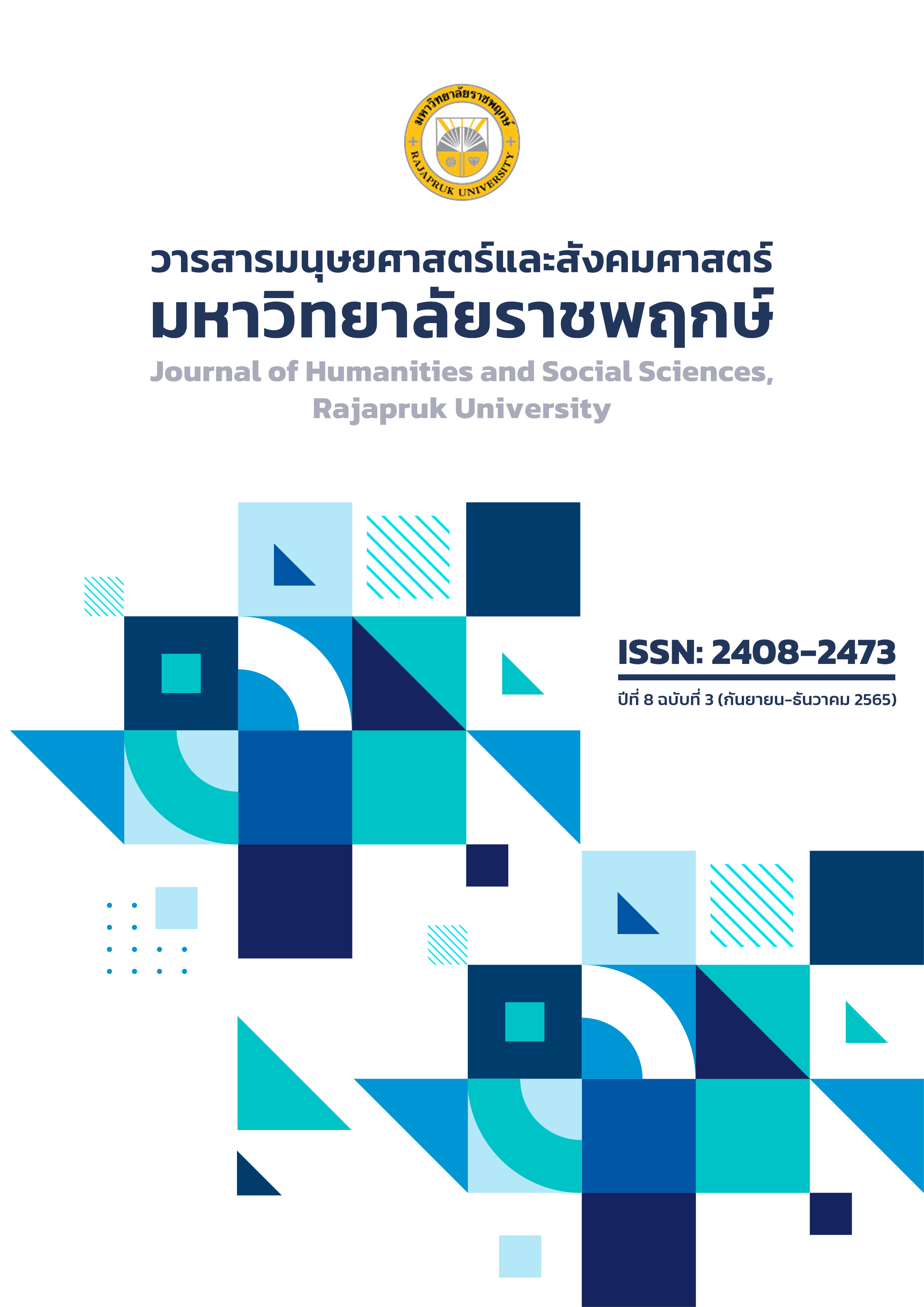Criminal Liability for Sexual Relationship between Secondary Educators and Students
Main Article Content
Abstract
According to the Thai Criminal Code, the sexual act between an educator and student at public or private secondary or vocational educational institutions is a criminal offense and legally liable only if the student is under the age of 15, regardless of their consent, or if the act amounts to sexual assault. Furthermore, the laws protecting students under the age of 18 have several flaws: They are incomprehensive, thus failing to protect the child from all cases of sexual misconduct, and the penalty is disproportionate to the severity of the offense. It is also a compoundable offense under such provisions. A recent study shows that the problem of sexual misconduct of this nature in Thai educational institutions usually occurs in a teacher-student sexual relationship. In some cases, educators use grooming techniques to build trust with vulnerable targets and manipulate them into consensual sex acts, thus making the case fall outside of the criteria of sexual assault according to the Criminal Code and resulting in students over age 15 being unprotected under the existing provisions. Taking into account (1) the relationship between educator and students; (2) the educator’s position of trust; (3) the criminality of the act; (4) the effects on the student and the education system as a whole; and (5) the criminalization of sexual act by an educator with the student over the age of consent in other countries which deems the common notion of sexual freedom inapplicable; the author proposes that Thai legislation adds criminal provisions which specifically deals with the case of educator sexual misconduct with secondary school students.
Article Details
References
กลุ่มวินัยและนิติการ. (2563). รายงานประจำปีงบประมาณ 2560–2562. กรุงเทพฯ: สำนักงานคณะกรรมการข้าราชการครูและบุคลากรทางการศึกษา.
กองผู้ช่วยผู้พิพากษาศาลฎีกา. คำพิพากษาฎีกาที่ 3343/2534. ค้นเมื่อวันที่ 24 พฤษภาคม 2564, จาก https://deka.in.th/view-18172.html
กองผู้ช่วยผู้พิพากษาศาลฎีกา. คำพิพากษาฎีกาที่ 3718/2547. ค้นเมื่อวันที่ 24 พฤษภาคม 2564, จาก https://deka.in.th/view-410988.html
ทวีเกียรติ มีนะกนิษฐ์ และรณกรณ์ บุญมี. (2564). คำอธิบายกฎหมายอาญา ภาคความผิดและลหุโทษ. พิมพ์ครั้งที่ 18. กรุงเทพฯ: วิญญูชน.
ประมวลกฎหมายอาญา มาตรา 276–279 มาตรา 283 ทวิ และ มาตรา 284.
พระราชบัญญัติคุ้มครองเด็ก พ.ศ.2546 มาตรา 4 มาตรา 5 มาตรา 26(9) และ มาตรา 78.
พระราชบัญญัติศาลเยาวชนและครอบครัวและวิธีพิจารณาคดีเยาวชนและครอบครัว พ.ศ.2553 มาตรา 4 และมาตรา 97.
มาตาลักษณ์ เสรเมธากุล. (2560). งานวิจัยการคุ้มครองสิทธิเด็กภายใต้แนวคิด เกี่ยวกับประโยชน์สูงสุดของเด็ก. กรุงเทพฯ: คณะนิติศาสตร์ มหาวิทยาลัยธรรมศาสตร์.
รัฐธรรมนูญแห่งราชอาณาจักรไทย พุทธศักราช 2560 มาตรา 77.
สหรัฐ กิติ ศุภากร. (2564). หลักและคำพิพากษากฎหมายอาญา. กรุงเทพฯ: อมรินทร์พริ้นติ้งแอนด์พลับบลิชชิ่ง.
สุขุม เฉลยทรัพย์. (2561). ‘ครู’กับ‘ศิษย์’ ใกล้ชิดแค่ไหน? จึงจะ‘พอดี’. ค้นเมื่อวันที่ 26 มกราคม 2564, จาก https://www.matichon.co.th/article/news_831200
Charol Shakeshaft. (2004). Educator Sexual Misconduct: A Synthesis of Existing Literature. United State of America: U.S. Department of Education, Office of the Under Secretary.
Convention on the Rights of the Child 1989 (adopted 20 November 1989, entered into force 2 September 1990) UNGA Res 44/25 (CRC) art 1, art 3, art 19, art 36, art 37(c).
Erik H. Erikson. (1968) Identity Youth and Crisis. New York: W. W. Norton & Company, Inc.
Iowa Code Title XVI Criminal Law and Procedure, Chapter 709 Sexual Abuse, Section 709.15 Sexual exploitation by a counselor, therapist, or school employee.
Iowa Code Title XVI Criminal Law and Procedure, Chapter 902 Felonies, Section 902.9 Class D felony.
Iowa Code Title XVI Criminal Law and Procedure, Chapter 903 Misdemeanors, Section 903.1 Aggravated misdemeanor.
Markus Dubber and Tatjana Hörnle. (2014). THE OXFORD HANDBOOK OF CRIMINAL LAW. UK: Oxford University Press.
Richard R. Hammes, (1982). ‘In Loco Parentis: Considerations in Teacher/Student Relationships’ The Clearing House, 56(1): 8–11.
Sexual Offences Act 2003 PART 1, Abuse of position of trust section 16–24.
Statutes of Pennsylvania, Title 18 Crimes and offense, Chapter 1. General Provisions, § 106 Classes of offenses (b) Classification of crimes (4) felony of the third degree.
Statutes of Pennsylvania, Title 18 Crimes and offense, Chapter 31. Sexual offenses,§ 3124.2 Institutional sexual assault (a.2) Schools. (1)–(2)
The National Society for the Prevention of Cruelty to Children. “Position of trust”. Retrieved on February 20th 2021, from https://learning.nspcc.org.uk research-resources/briefings/preventing-abuse-positions-of-trust
The National Society for the Prevention of Cruelty to Children. “Grooming”. Retrieved on February 20th 2021, from https://learning.nspcc.org.uk/research-resources/briefings/grooming >


